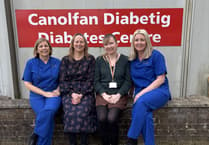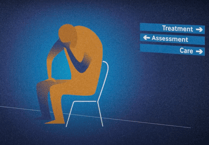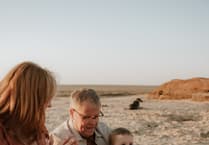Withybush Hospital could face closure, according to a leaked report from Hywel Dda University Health Board that will be put out to consultation later this year.
Other options involve closing or removing services from Carmarthen and Llanelli in Glangwili and Prince Philip Hospitals, according to the proposals.
Plaid Cymru, Mid and West AM, Shadow Cabinet Secretary for Rural Affairs, Simon Thomas, said: “These leaked documents once again call into question the commitment of the Labour government into providing a health service for rural Wales and in the west.
“Hywel Dda health bosses appear obsessed with service change and re-organisation rather than getting on with the job of running health services. It’s only a few years since the last set of major changes, justified on the grounds of ‘sustainability’ and allegedly for the long term.
“Now once again the board are considering more changes, like a gambling addict convinced just one more bet will solve their problems. Trying to have a health service with no hospitals locally is something no other country would even attempt, but that doesn’t appear to stop this relentless ideology of pretending you can deal with an elderly population by substituting hospital beds in exchange for a few extra community health staff with ipads.”
Angela Burns AM was also hugely concerned over the details of the leak.
“I am disappointed that, despite years of assurances from the local health board and the Welsh Labour Government in Cardiff, that the future of Withybush Hospital remains under threat.
“Numerous Ministers have told us that closure was not part of the plans and yet we now have this news. Why should any member of the public in Pembrokeshire have any faith in what the Labour Party or the local health board have to say when it comes to the future of our hospital.
“I am also concerned about what effect this leak will have on staff moral and attempts to recruit clinicians and nursing staff to work at this hospital. It is already a challenge to attract staff to hospitals based outside the main cities and this task will only get harder with these damning leaks.
“It will also affect our efforts to recruit GPs to Pembrokeshire. A GP needs to know they have a resilient hospital looking after their backs.
“Have the Health Board looked at the demographics of our population or our poor transport links?
“I recognise that as medical treatment changes and integrated care becomes ever more vital we need to look at new ways of working, but the reality is that Welsh Labour have completely underfunded the NHS and Hywel Dda’s woes are ones purely based on their debt burdens and the lack of recognition by Welsh Labour of our rurality and difficult economic circumstances.
“I will be bringing this issue up with the Welsh Government as a matter of urgency and have repeatedly asked for a meeting with the Chief Executive of Hwyel Dda to seek clarity over the validity of this leak and promises that Withybush will remain open
MP for Carmarthen West and South Pembrokeshire, Simon Hart, also commented on the news.
“This is an extremely worrying time for everyone living in the area and I would urge the Health Board to be completely transparent and open about what is happening to our hospitals,” he said.
“It is no wonder that the Health Board struggles to recruit consultants and GPs when we have this uncertainty hanging over us.
“Closing Withybush and or Glangwili Hospital would be a huge blow to the community and would feel like a betrayal by the Health Board.”
Health service changes to be proposed in the spring
Hywel Dda University Health Board will present the public with preferred options to transform community and hospital services this spring.
The Health Board says it is proposing change so that it can make the most of every opportunity to improve population health and health services locally, as well as face its challenges and ensure services are the safest and highest value they can be for communities in mid and west Wales.
Following engagement with the public in summer 2017, potential options are currently being discussed, tested and narrowed down by the Health Board, in conjunction with doctors, nurses, wider staff groups, people who help provide care, patient representatives and partners.
All potential options, which are clinically-led, consider significant change to the status quo and focus on improving the health of the local population and transferring more hospital services into the community where appropriate. Some consider whether hospitals need to take on different roles, or even need to be replaced.
A fewer number of preferred options will be released publically in the spring, when the Health Board is confident they are viable, safe and an improvement on what is currently provided.
Medical director, Dr Philip Kloer, said: “This is a once-in-a-lifetime opportunity for our health service and community to work together to design an NHS which is fit for our generation and beyond. It has been acknowledged for some time across the UK that healthcare services are challenged like never before and we need significant change. Indeed this has been recognised in the recently published ‘Parliamentary Review of Health & Social Care’ here in Wales.
“We need to develop more proactive, resilient and better resourced local community services to support and improve people’s health and wellbeing, and avoid deterioration where possible. This will involve closer working with our partners, particularly colleagues in social care. We are also looking at ways of providing the most modern clinical practice, using the latest digital, technological, and new scientific developments, in fit for purpose facilities to provide better patient outcomes and experience.
“A number of our services are fragile and dependent on significant numbers of temporary staff, which can lead to poorer quality care. For us specifically in Hywel Dda, the geography we cover is large, with many scattered communities that are getting older, needing more holistic health and social care treatment and support. Because of this, we need to better resource our community based care, which is where most of our patient contact is, and help people manage their health conditions. We also need to evolve traditional ways of working and provide a more proactive approach. This should give patients - young, older and frail and everyone in between - the services they need when the need it, so people do not have to wait too long.
“This will mean changing hospital-based care, as well as community care, and we appreciate the attachment local people and our own staff have for their local hospitals. They have been cared for in them, or work in them, and they also play an important role in our wider communities. The options may propose change to a local hospital; however this is about more than the buildings. This is about investing in our communities, attracting doctors, nurses and therapists by operating a modern healthcare system and keeping hospitals for those who really need hospital care.
“We will not put in place any change that isn’t safe for our patients and population. And we will look at all the impacts from ensuring services are safer with better patient outcomes, to considering the wider impact on people, including the most vulnerable.”
Initial engagement with the public started with the Big Conversation in the summer of 2017, with public workshops and drop-ins held across the three counties of Carmarthenshire, Ceredigion and Pembrokeshire.
Those views have been independently analysed and used as a basis to explore, challenge and test different scenarios, which just since Christmas has resulted in 14 additional events attended by more than 350 people.
Dr Kloer said: “The potential options are evolving, with changes to them on almost a daily basis. Many will never even reach public consultation, for a variety of reasons including safety, accessibility and affordability, or will change significantly as they are tested against population needs and healthcare standards.
“We will be coming back to the public in the spring with fewer options that have been more rigorously tested and we will be open and honest about what we think our preferred option is and why. We would not, and cannot, propose something that would not be safe for our population.”
No preferred option has yet been determined and the Health Board has not signed off or agreed to any change at this stage.
Dr. Kloer said: “We live in this community, use our NHS and work for our NHS and we want to work with our patients, staff, partners and public to ensure it is the best it can be.”




